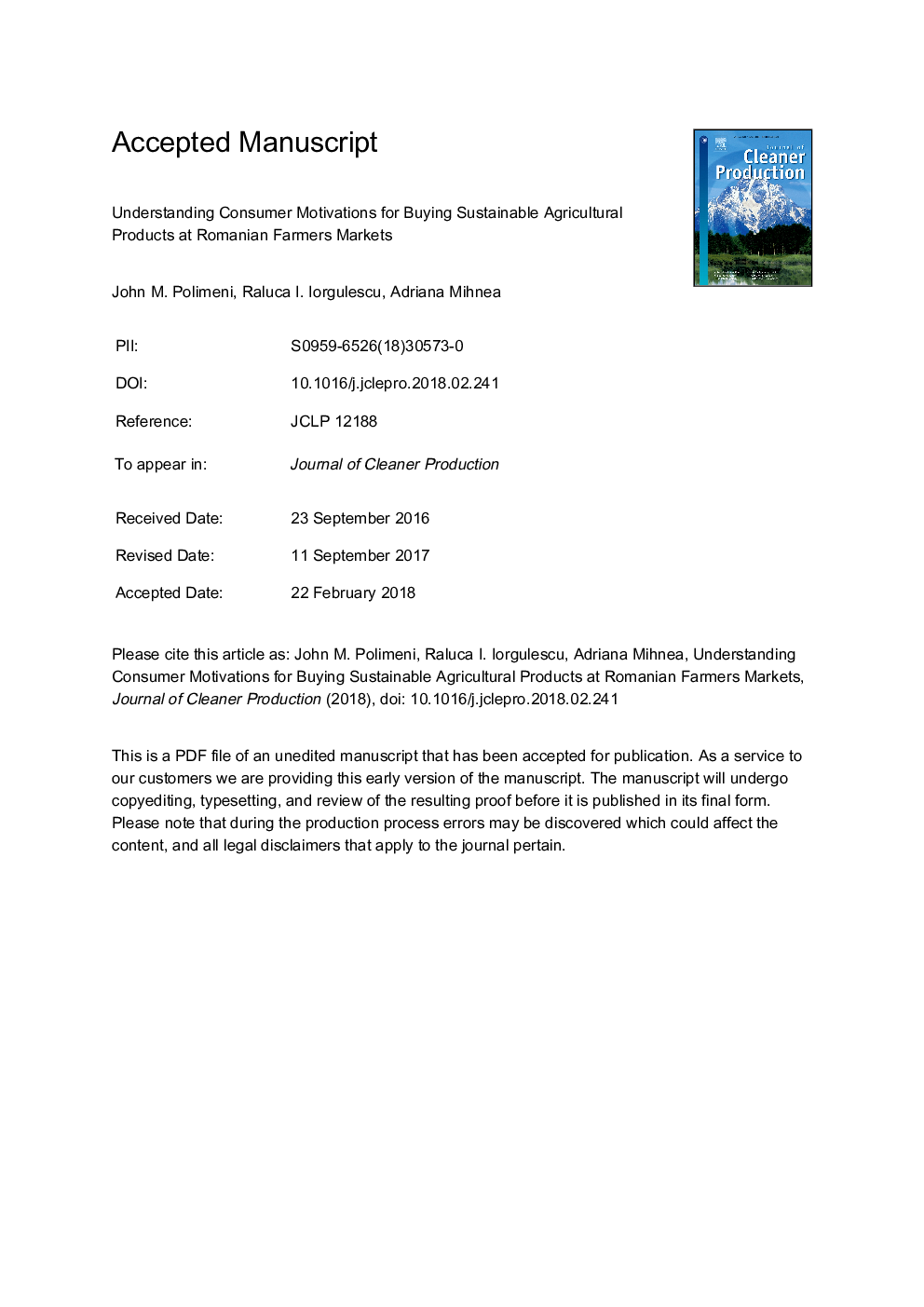| Article ID | Journal | Published Year | Pages | File Type |
|---|---|---|---|---|
| 8096764 | Journal of Cleaner Production | 2018 | 12 Pages |
Abstract
Farmers markets are an important direct-to-consumer market that enables non-farmers to purchase locally, and often sustainably, grown produce and products. This interaction is mutually beneficial. Consumers gain access to local produce and products, typically at lower costs, while learning about their food, local products, and how they are produced. Farmers retain some profit by eliminating the wholesaler and having increased interaction with the consumer and winning their loyalty for their products. Understanding the factors that influence consumer motivations for buying sustainable agricultural products would provide producers and policy-makers better information to improve economic development and the growth of farmers markets. This study examines, using primary data from 243 surveys, the characteristics and motivations of consumers at 89 farmers markets (piaţa) throughout Romania. Socioeconomic and demographic characteristics are presented using descriptive statistics. Ordered logit models are used to understand consumer motivations. The results of this study suggest that consumers learn about how the agricultural products they purchase at the piaţa are produced and the connection between the environment, community building, and their personal health. Furthermore, economic value, wealth, and educational level are important factors for consumers to choose sustainable products at the piaţa. These findings are necessary to develop and maintain sustainable agricultural production.
Related Topics
Physical Sciences and Engineering
Energy
Renewable Energy, Sustainability and the Environment
Authors
John M. Polimeni, Raluca I. Iorgulescu, Adriana Mihnea,
